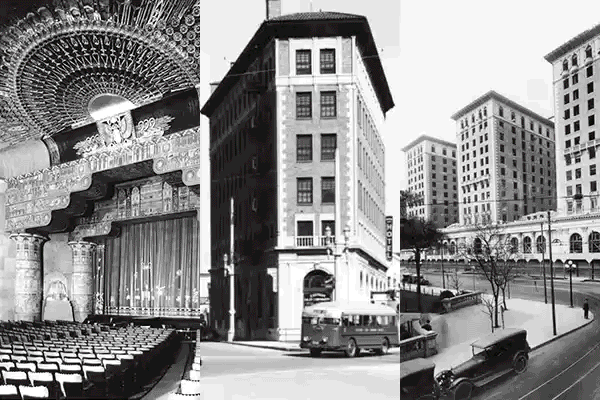The Age of Earnestness
- Share via
In Los Angeles, half a century ago last weekend, James Hilton and Walt Disney, devisers of “Shangri-La” and “The Happiest Place on Earth,” respectively, met. James Cagney was seen rubbing shoulders with Theodore Dreiser. Oscar Hammerstein and Thomas Mann palled around.
The occasion for all this illustrious mingling was the Writers’ Congress of 1943, held during the first three days of October at UCLA. Convened under the joint sponsorship of the wartime Hollywood Writers’ Mobilization and the University of California, the Writers’ Congress began with the reading of a telegram from President Roosevelt congratulating the organizers “for sponsoring a meeting of importance to all Americans.” Its purpose, quoted in full:
“To analyze propaganda techniques as weapons of victory; to sharpen the creative skill of writers by pooling their creative experience and knowledge; to investigate the most effective use of new media of expression; to strengthen . . . cultural understanding among the United Nations; to mobilize the entire writing profession in a program of action for the free world of tomorrow.”
“God what dull subjects,” composer and panelist David Raksin sheepishly remembers today. Then he changes key: “What I mean is not that they’re dull, but that they had a certain earnestness which is so typical of the time, and of which we should probably be ashamed.”
Yet the sprightly paper Raksin contributed to the Congress, called “Humor in Music,” is nothing to be ashamed of. Neither are several others, including the unblushingly patriotic “Cultural Changes in America” by “Sahara” screenwriter John Howard Lawson, and Dalton Trumbo’s strikingly contemporary essay, “Minorities and the Screen.”
Seven years after the Writers’ Congress of Los Angeles adjourned, Dalton Trumbo and John Howard Lawson were together again, this time in Ashland, Ky., serving federal prison terms for contempt of an altogether different Congress. Posthumously, the once black-listed Trumbo would set a record in 1993 for the most Oscars won under assumed names, when his story for “Roman Holiday” finally joined his original screenplay for “The Brave One” in coming out from behind its front.
“Proceedings of the Writers’ Congress, Los Angeles, 1943,” was published in 1944 by the University of California Press in a handsome, long since out-of-print hardcover, jacketed in sturdy wartime brown paper (look for it in good research libraries or at your favorite used bookstore).
Page One coverage of the opening session in the next morning’s Los Angeles Times carried the headline: “Sproul Welcomes Writers’ Congress/U.C. President Declares There’s Need to Revise Thinking of Mankind.” Right next to it was the headline “Legion Demands Inquiry Into U.C. Activities.” In that story, a meeting of the American Legion at Patriotic Hall passed a resolution condemning the Writers’ Congress, and its “use of tax-supported schools and facilities for meetings which can be viewed only as un-American in their nature and purposes.”
The Writers’ Congress of 1943 concluded with the adoption of several resolutions of its own. The one that rated the most ink from The Times called on Roosevelt to create a cabinet-level department of arts and letters. No record survives of the President’s reply, if any, but the “Daily Dimout Reminder” at the bottom of the page--”The dimout is effective from sunset, 6:34 p.m. today, until sunrise, 6:51 a.m. tomorrow”--serves to remind us F.D.R. may have had other things on his mind in 1943.
More to Read
Only good movies
Get the Indie Focus newsletter, Mark Olsen's weekly guide to the world of cinema.
You may occasionally receive promotional content from the Los Angeles Times.











